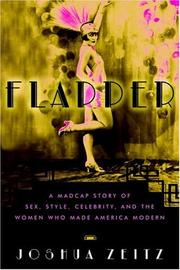"Well," I was told, "there's Barry Goldwater who wants war and may use the Atom bomb, and there's LBJ who wants to end poverty."
I voted for LBJ, enchanted by his Great Society idealism.
I have been fascinated by President Johnson for years and have read multiple biographies him. My political awareness was formed under his presidency. I was a junior in high school when President Johnson gave his speech that ended announcing he would not seek reelection.
Building the Great Society by Joshua Zeitz is exactly the kind of book I enjoy, one that puts my personal memories into historical perspective, fleshed out with insight that I lacked at the time. I also appreciated learning how the Great Society programs impacted lives and the motivation behind their critics' desire to dismantle them.
*****
In 1963 America was at a pinnacle of economic boom with the rise of the Middle Class and a huge increase in the Gross National Product. It was a time of fast food restaurants and power steering, electricity in every home powering refrigerators and televisions and stereos. My family had just moved to Metro Detroit, Dad seeking employment in the auto industry. Getting that job gave my family economic stability and badly needed health care.At the same time millions of Americans were left behind in poverty, including populations in Appalachia and rural America. One-fifth of the population lived at or below the poverty line of $3,000 for a family of four. The majority of the impoverished were Caucasian, but a higher percentage of African Americans were impoverished--40%. And female headed households were 50% impoverished.
After assuming the presidency following the assassination of President Kennedy, President Johnson identified himself as a "Roosevelt New Dealer" who found Kennedy "a little too conservative." But his history of voting with the Dixiecrats against legislation addressing African American equality left many doubtful.
Zeitz paints a picture of Liberals' belief in the sustainability of the Great Society programs, writing that "the idea that the economy might someday stop growing rarely factored seriously into liberal thinking."
Government's impact in solving social ills was not a new idea. The programs envisioned by President Johnson were rooted in the New Deal public works programs of President Roosevelt. "The War on Poverty" was an term first used by President Kennedy in a 1960 campaign speech. "The Great Society" was the title of a book by Walter Lippmann. President Johnson used the term "Great Society" in a speech at the University of Michigan in May, 1964, drafted by Richard Goodwin.
According to Charles Roberts, Bill Moyers was the "Presidents' good angel, representing his conscience when there's a conflict between conscience and expediency."
The Great Society programs were not instituted predominately for urban African Americans; that stereotype came later from Republicans who were hostile to the programs.
Zeitz follows Johnson's presidency and the events of the time: the impact and legacy of the Great Society programs; the Viet Nam War siphoning money and energy away; Robert Kennedy's candidacy and assassination; riots and civil unrest at home; the assassination of Rev. Martin Luther King, Jr.; George Wallace and his platform of rage and hate (giving my little brother nightmares!); and Nixon's secret campaign to sabotage Johnson's peace talks.
Nixon did not dismantle all the programs; many continued to thrive while others did not. It was a time of environmental awareness, and Nixon established the EPA and NOAA and addressed clean air and water issues.
The economic theories of the early 60s did not pan out. Poverty is still with us. But the Great Society programs have impacted society for the better, especially in areas of equality, access to food and health care. Zeitz warns that the Trump administration's dismantling the Great Society programs may cause a backfire: "When the pendulum swings back, it may swing hard," with a more radical approach.
More than 'just' a history lesson, this book also informed me about the changing attitudes and policies concerning social issues and especially how we got to 'here', a time when Republican leaders are determined to dismantle the Great Society legacy.
I received a free ebook from the publisher in exchange for a fair and unbiased review.
Building the Great Society
Inside Lyndon Johnson's White House
by Joshua Zeitz
PENGUIN GROUP Viking
Publication January 30, 2018
ISBN:9780525428787
PRICE $30.00 (USD)



